Mathematics
Mathematics is the study of numbers, quantities, shapes, and patterns. It is a fundamental subject that is used in various fields including science, engineering, economics, and everyday life.
Branches of Mathematics
Mathematics can be broadly divided into several branches:
- Arithmetic: Deals with basic operations such as addition, subtraction, multiplication, and division.
- Algebra: Focuses on the study of mathematical symbols and the rules for manipulating these symbols.
- Geometry: Involves the study of shapes, sizes, and properties of space.
- Calculus: Concerned with the study of change and motion through the use of derivatives and integrals.
- Statistics: Involves the collection, analysis, interpretation, and presentation of numerical data.
Key Concepts in Mathematics
Some key concepts in mathematics include:
- Number Systems: Understanding of different number systems such as natural numbers, integers, rational numbers, and real numbers.
- Equations and Inequalities: Solving equations and inequalities to find unknown values.
- Geometric Shapes and Figures: Understanding properties of shapes such as triangles, circles, and polygons.
- Functions and Graphs: Exploring relationships between variables and representing them graphically.
- Probability and Statistics: Analyzing chance and variability in data.
Study Tips for Mathematics
To excel in mathematics, consider the following study tips:
- Practice Regularly: Mathematics requires regular practice to master concepts and problem-solving techniques.
- Understand the Fundamentals: Ensure a strong foundation in basic operations, algebraic rules, and geometric principles.
- Seek Help When Needed: Don’t hesitate to ask questions and seek help from teachers, tutors, or online resources.
- Apply Mathematics to Real-Life Situations: Understand how mathematics is used in everyday scenarios to appreciate its practical significance.
- Use Resources Wisely: Utilize textbooks, online tutorials, and educational apps to reinforce learning.
By understanding the branches of mathematics, key concepts, and implementing effective study strategies, students can develop a strong foundation in this essential subject.
.◂Science Worksheets and Study Guides Seventh Grade. Photosynthesis and Respiration
Worksheet/Answer key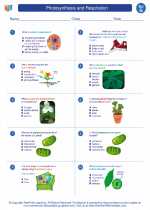 Photosynthesis and Respiration
Photosynthesis and Respiration  Worksheet/Answer key
Worksheet/Answer key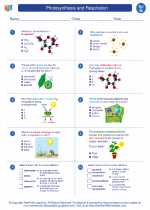 Photosynthesis and Respiration
Photosynthesis and Respiration  Worksheet/Answer key
Worksheet/Answer key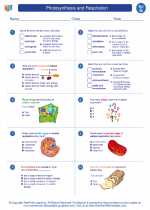 Photosynthesis and Respiration
Photosynthesis and Respiration  Vocabulary/Answer key
Vocabulary/Answer key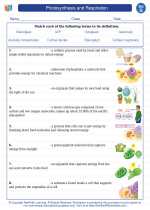 Photosynthesis and Respiration
Photosynthesis and Respiration  Vocabulary/Answer key
Vocabulary/Answer key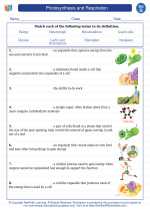 Photosynthesis and Respiration
Photosynthesis and Respiration  Vocabulary/Answer key
Vocabulary/Answer key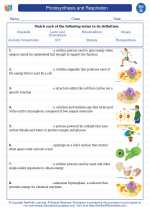 Photosynthesis and Respiration
Photosynthesis and Respiration 

 Worksheet/Answer key
Worksheet/Answer key
 Worksheet/Answer key
Worksheet/Answer key
 Vocabulary/Answer key
Vocabulary/Answer key
 Vocabulary/Answer key
Vocabulary/Answer key
 Vocabulary/Answer key
Vocabulary/Answer key

The resources above cover the following skills:
LIFE SCIENCE
Ecosystems: Interactions, Energy, and Dynamics
Examine the cycling of matter between abiotic and biotic parts of ecosystems to explain the flow of energy and the conservation of matter.
Generate a scientific explanation based on evidence for the role of photosynthesis and cellular respiration in the cycling of matter and flow of energy into and out of organisms.